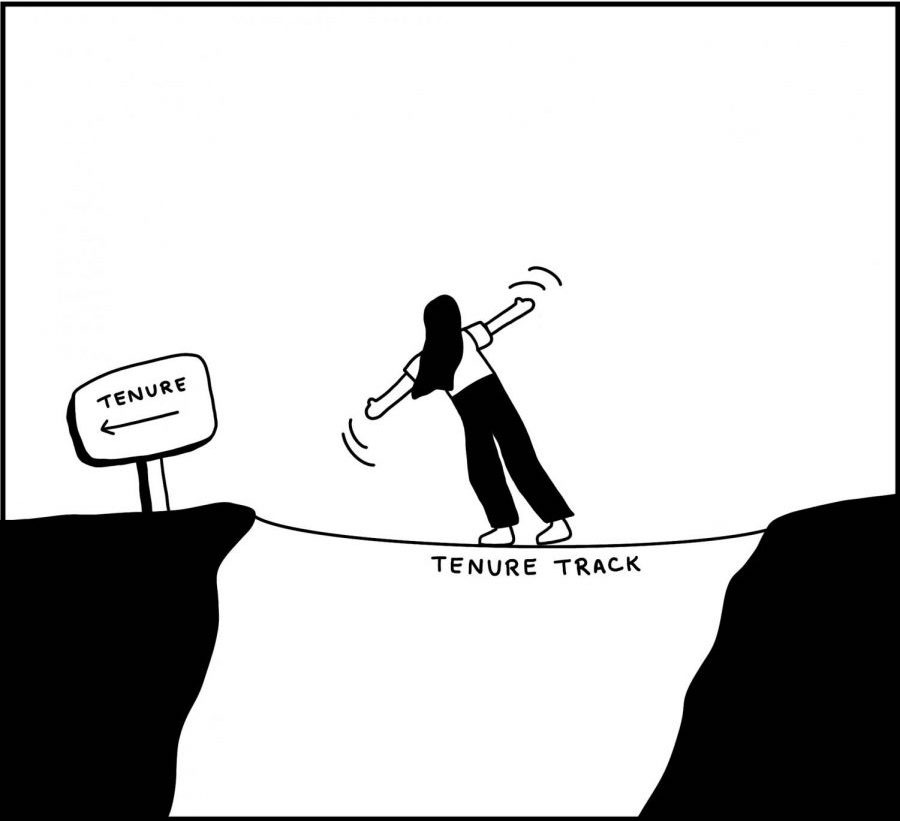
Discover more from Sour Milk
Teaching Is An Art, Not A Science
There is a great deal of talk today on college and university campuses about “social justice” and “equity.” It is time these concepts are expanded to include the growing academic underclass that does much of the heavy lifting when it comes to teaching undergraduates. While the University of Michigan spent $10.6 million on eighty “diversity officers” in 2018 (an average of $132,500 each), according to the American Federation of Teachers, a third of non-tenured faculty members made less than $25,000 in 2019 and another third made less than $50,000.
College and university tuitions have tripled since 1975, but very little money has been spent on teachers. Like our banks, our institutions of higher learning, backed by non-default student loans, have engaged in economic speculation. Financially leveraged and often operating on lines of credit, they, like so many other American businesses, balance their books by relying on part-time labor. As bad as the low pay and lack of benefits is the perpetual insecurity of leading life one semester at a time.
For “lecturers,” “adjunct” or “contingent” academics, contemporary higher education has more in common with the meatpacking industry than with the world of ideas and scholarship. Although lecturers and adjunct professors teach the same classes, advise the same students, and grade the same exams as their tenured colleagues, they are paid a fraction of their wages. Despite the progressive rhetoric, American colleges and universities have embraced black market labor practices that were once confined to agriculture in California. “Publish or perish” has devolved into “publish and perish.”
A fast-growing number of part-time professors live at or below the poverty line and are on some form of federal assistance. According to the Chronicle of Higher Education, today 1.3 million of 1.8 million professors, 70% of faculty, are not on a tenure track and never will be. The future for most academics, especially in the humanities, is bleak. Very soon only a minority of academics will have full-time employment, much less tenure and the intellectual freedom it once ensured.
Not only are these academic second class citizens undervalued, they undermine the status of tenured faculty members who turn a blind eye to this exploitation of their supposed “colleagues.” I quit teaching a few years ago after it became clear to me that despite four well- reviewed scholarly books, packed classes, and excellent student evaluations, I would never break through the glass ceiling to tenured professor. My wages had remained stagnant since I started teaching at Columbia University in 1996, and I was making less money in 2016 than I made as a construction laborer without a high school degree in 1982.
I formed Fainting Robin Foundation in 2017 to provide financial support for independent journalists, teachers, and scholars who fell outside of an ever-narrowing mainstream.
Since then, we have awarded four no-strings-attached cash prizes to teacher/scholar Sylvain Vogel, journalist Ed Vulliamy, special needs teacher Agnes Kamara Fallah, and science teacher Rob Condon. Fainting Robin Foundation’s 2022 Distinguished Scholar award goes to Dr. T. Robert Hart, a dedicated non-tenure track teacher and scholar.
Hart has taught history at University of North Carolina Wilmington as a “lecturer” for more than a decade. Since the fall of 2020, Hart has taught seventeen classes on everything from environmental history, Appalachian history, U.S. National Parks, and Coastal History, directed two honor theses, served on two graduate honors thesis committees, participated in ten professional development workshops and served as his department’s liaison for Distance Learning during the pandemic. Below are some of the student evaluations from Hart’s Environmental History class last semester.
“Dr. Hart is probably the best teacher I’ve had at UNCW. He is a very understanding, kind guy and is willing to work with his students on any problem they may have with the course….Dr. Hart is one of the few professors I’ve had at UNCW that I never saw make a student look dumb for asking a ‘stupid’ question. This was one of those classes where the lectures were typically interesting and I left feeling like I had learned something. My only complaint is that the class time probably should have been longer by about 30 minutes or so for the amount of content covered, but obviously, that is not the fault of Dr. Hart. Fantastic teacher, can’t wait to have another class of his.”
“Dr. Hart is an exceptional teacher. His presentation style and willingness to encourage class discussions makes his class very insightful and interesting.”
“Truly one of the professors that I will remember from my time here, Professor Hart has stood out as one of the best. He is passionate about what he teaches and it translates to the classroom. He is very friendly and personable and makes the material easy to understand. It is clear he is very passionate about this and only wants us to see in nature what he sees. Professor hart and this class have been one of the best experiences I have had at UNCW.”
“Dr. Hart is truly an amazing professor, one of the best professors I have had so far at UNCW! He is concise, makes learning interesting, his stories and the way he lectures in class is captivating, and you can actually tell he cares about Environmental History and what students are learning and taking away from his class. He is amazing at answering questions and responding to emails in a timely manner which I find extremely rare with other encounters regarding other professors at UNCW. He makes his schedule flexible if you have any questions or would like to discuss class materials.”
Despite his massive teaching load, T. Robert Hart still found the time and energy for scholarship. He contributed a chapter in the book American Discord: The Republic and Its People in the Civil War Era and worked on his book Conceived in Sin: Santee-Cooper and the South Carolina Landscape (under contract with University of Georgia Press). For all of this, he was paid $257,000 less than UNCW’s basketball coach, 31% less than his coworkers, and $5000 less than a Columbia University doctoral candidate teaching without a Ph.D. Worse, because of the professional track he is on, it is very unlikely that he will ever receive tenure. All the state of- the-art educational technology in the world is meaningless without dedicated professors like T. Robert Hart who support their students in and out of the classroom. Teaching is an art, not a science. Students are not customers and learning is not a commodity.






